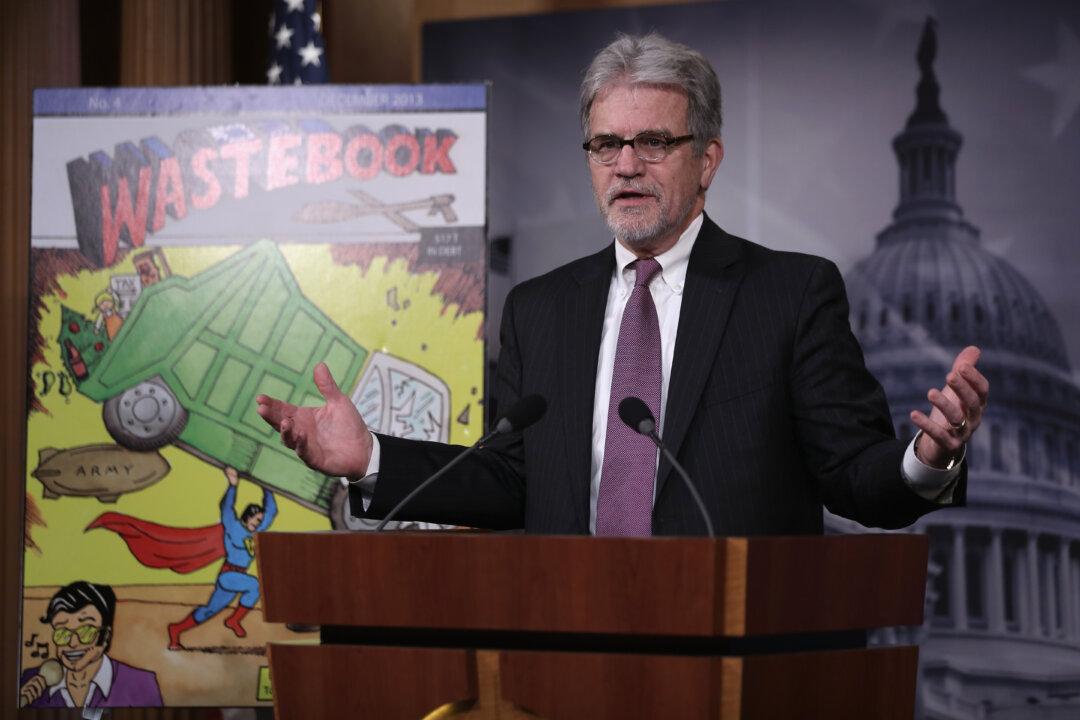WASHINGTON—A coalition of six Republican and three Democratic senators wants officials to inventory the costs, goals, and performance of all federal programs, then post the resulting database on the internet.
The co-sponsors of the Taxpayers Right to Know Act of 2019 include Senate Republicans James Lankford (Okla.), Joni Ernst (Iowa), Ron Johnson (Wis.), Mike Enzi (Wyo.), John Cornyn (Texas), and Rand Paul (Ky.), as well as Democrats Jon Tester (Mont.), Maggie Hassan (N.H.), and Kyrsten Sinema (Ariz).





